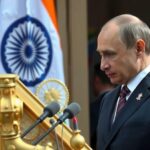Conflicts
Politics
ASIA, ASK, ASKAR KUBANYCHBEK, BIS, COUNCIL FOR, EUROPE, EUROPE/ASIA, HUMAN RIGHTS, INTERNATIONAL RELATIONS, KAZAKHSTAN, KAZAN, KI, KREMLIN, KYIV, KYRGY, KYRGYZSTAN, MIRONOV, MOSCOW, RUSSIA, RUSSIA-UKRAINE WAR, RUSSIAN ARMY, SANCTIONS, SERGEI MIRONOV, TAJIKISTAN, TURKMENISTAN, UKRAINE, UULU, UZBEKISTAN, WAR
Nia Simpson
Central Asia’s Lenient Sentences for Citizens Joining Russia’s Military Efforts
Recent court rulings in Kyrgyzstan and Uzbekistan reveal a lenient approach towards citizens participating in the Russian military operations in Ukraine. This shift showcases reduced penalties contrary to previous warnings, suggesting a complex relationship with Russian influence and a weakening of legal deterrents against enlistment.
In recent developments, Kyrgyzstan and Uzbekistan have taken notably lenient approaches toward their nationals who participated in the Russian military efforts in Ukraine. This follows the alarm raised by Russian lawmaker Sergei Mironov over Uzbek citizens’ travel to Russia. Despite previous warnings of severe penalties, recent court rulings indicate that sentences for combatants are often much less severe than anticipated, revealing an apparent shift in legal consequences for such actions.
Several cases illustrate this trend, particularly in Kyrgyzstan, where the legal framework allows for substantial penalties for involvement in foreign conflicts. However, specific cases demonstrate that the judiciary is willing to impose conditional sentences or reduce jail time, diluting the deterrent effect of the law. Kyrgyzstan’s judicial leniency is evidenced by instances where individuals were jailed for joining the Russian army but later had their sentences commuted or reduced without substantial repercussions.
In Uzbekistan, similar patterns can be observed. Reports indicate that courts have been issuing non-custodial sentences for citizens who fought for Russia. For instance, an individual who confessed to engaging in combat for mere days received a conditional sentence, reflecting a broader trend where the legal system prioritizes personal circumstances over punitive measures. While some have received noteworthy sentences, overall leniency in legal repercussions raises concerns regarding accountability.
Moreover, the reaction to these lenient sentences has sparked criticism from various quarters, especially from Ukrainian commentators. The perception is that the judicial decisions prioritize the well-being of the detainees over the suffering of Ukrainian victims. Critics argue that this sends a harmful message about joining the Russian military, potentially encouraging more citizens from Central Asia to enlist.
The evolving legal landscape in both Uzbekistan and Kyrgyzstan signals a complex interplay between local governments and Russian influence. The trend of light punishments for participating in the war undermines initial legal prohibitions and appears to pave the way for increased engagement of Central Asian nationals in combat roles for Russia. Thus, legal disincentives previously thought to deter enlistment are weakening, compromising both regional stability and humanitarian considerations.
Russian military operations in Ukraine have led to significant regional ramifications, particularly for Central Asian nations like Kyrgyzstan and Uzbekistan. These countries face pressure from Russia to support its military efforts, compelling them to navigate complex dynamics in their legal systems to address citizen participation in foreign conflicts. While there are laws prohibiting such participation, recent court rulings suggest a trend of leniency that complicates the enforcement of these statutes and hints at a shift in how these nations respond to Russian recruitment efforts.
The trend of imposing lighter sentences for Central Asian nationals involved in the Russian war effort reflects a broader reluctance of Kyrgyzstan and Uzbekistan to confront Russian influence. These developments may further jeopardize regional stability as lenient judicial outcomes could encourage continued enlistment among citizens. Overall, the undermining of strict legal precedents highlights the complexities of balancing national laws with external pressures, resulting in potentially significant implications for both domestic and international affairs.
Original Source: www.rferl.org







Post Comment